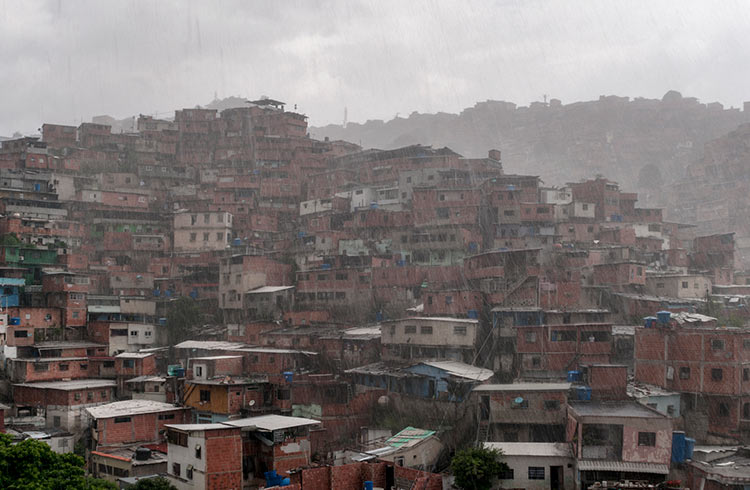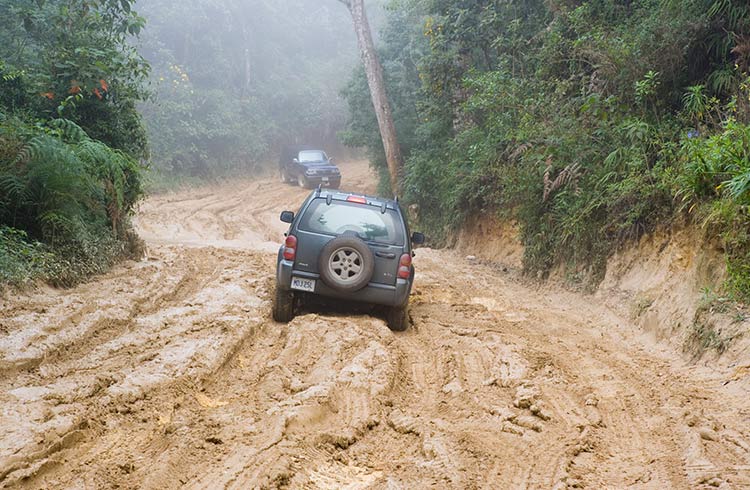Natural Hazards in Venezuela: Essential Travel Safety Tips
Earthquakes, floods, hurricanes and mudslides can happen in Venezuela. Here are a few tips on staying safe when natural hazards or disasters strike. Find out what to do before, during and after the event.
 Photo © Getty Images/photofxs68
Photo © Getty Images/photofxs68
IMPORTANT: Venezuela is currently considered a "Do Not Travel" destination by several government travel advisories. For more information, check out our Venezuela travel alerts page. Unfortunately World Nomads cannot offer travel insurance for Venezuela.
Earthquakes in Venezuela
Venezuela is located in an earthquake-prone zone, where the Boconó Fault runs through the Mérida Andes of northwestern Venezuela.
A famously devastating quake occurred in 1812 completely destroying the capital Caracas, and killing 20,000 people. It was so powerful it even formed a new lake and dammed a river.
In 2009 an offshore earthquake measuring 6.4 on the Richter scale struck 65mi (104km) from Caracas, causing a number of injuries and damaging buildings and power lines in the coastal town of Porto Cabellos, and in Caracas.
In 2018 a 7.3 magnitude earthquake struck just off the northern coast of Venezuela.
Earthquakes are impossible to predict, so it pays to be prepared and have a plan in the back of your mind, or atleast know what to do during an earthquake.
What to do if there's an earthquake
- When the quake strikes get yourself some physical protection from falling debris; get under a sturdy table, or cover yourself in soft furnishings or mattresses, and use your hands to protect your head
- When the quake stops, check yourself for injury before assisting others. Leave the building and get away from structures
- There will be aftershocks, and sometimes lots of them
- Stay away from fallen powerlines, they may be live. And don't use naked flame because gas may be leaking from fractured supply pipes
- If communications are working, call the emergency assistance number on your insurance policy. The team will be able to get messages to your family and also alert local authorities and consular officials from your home country.
Landslides in Venezuela
Venezuela is also subject to torrential rains, especially during rainy season which runs from May–November. Heavy rainfall can cause landslides.
The country suffered exceptionally heavy rains in late 2010, which have affected wide areas of the country, and road conditions remain poor. The government of Venezuela announced States of Emergency in many states including the capital. You may still encounter damaged infrastructure that affects your travels.
There have been mudslides in many areas of the country, which have particularly affected shantytowns built on hillsides.
They have left many homeless and blocked or damaged roads and highways.
Operations at airports have been disrupted in the past, causing flight delays. If you are traveling during rainy season, stay up to date with weather reports and prepare yourself for potential transport delays.

Hurricane season in Venezuela
Hurricanes are also a concern for travelers in Venezuela.
The Atlantic hurricane season runs from the 1st June to 30th November each year, and can affect portions of northern Venezuela.
The direction and strength of hurricanes can change with little warning.
Information on hurricanes or other severe weather conditions can be obtained from US National Hurricane Center and Tropical Prediction Center or the Humanitarian Early Warning Service.
Flights in and out of affected areas could be delayed or suspended. Available flights may fill quickly. So it's best to leave as early as possible, delaying that decision may leave you with no options. In some areas, adequate shelter from a severe hurricane may not be available to all who may choose to stay.
And while Venezuela is not prone to tropical hurricanes its coastal region are occasionally hit with torrential rain, powerful winds, high waves and storm surges.
Hurricanes are not such an issue in Caracas, as it is sheltered by the Avila mountain range, and the simple meteorological fact that cyclones lose their strength as they move over land.
During the rainy season (which runs from May to November, though heavy rains can occur outside this time) there is the possibility of flooding in certain low-lying areas of the country (e.g. the Llanos) and in some valleys in the Andes (Merida State).
What to do during a hurricane
- You should familiarize yourself with your hotel or cruise ship evacuation plans
- You should carry your travel documents at all times (passport and photo identification) or secure them in a safe, waterproof location. It is also a good idea to update your family at home as to your whereabouts and welfare.
Water safety in Venezuela
Travelers to Venezuela should be aware that the waters of the Caribbean can be deceptive and dangerous for swimmers or surfers.
It may look like a tropical paradise, but there are strong currents and undertows in some areas that can make swimming hazardous.
Lifeguards and warnings are not always present, so ask locals if they think it's safe to swim or surf, and always tell someone where you are. Try to go with a buddy instead of alone to maximise safety.
Simple and flexible travel insurance
You can buy at home or while traveling, and claim online from anywhere in the world. With 150+ adventure activities covered and 24/7 emergency assistance.
Get a quote
1 Comment
First and foremost - earthquakes in Venezuela are not an issue AT ALL. As a constant traveler who has lived in different parts of the country (west, east, and north), I can assure you that earthquakes are the least of our worries. We are not affected by them, and we do not even consider them a danger.
Secondly, we do not get hurricanes greater than number 1 in category, or at least have not done so in a minimum of 25 years.